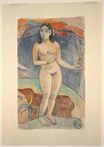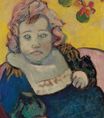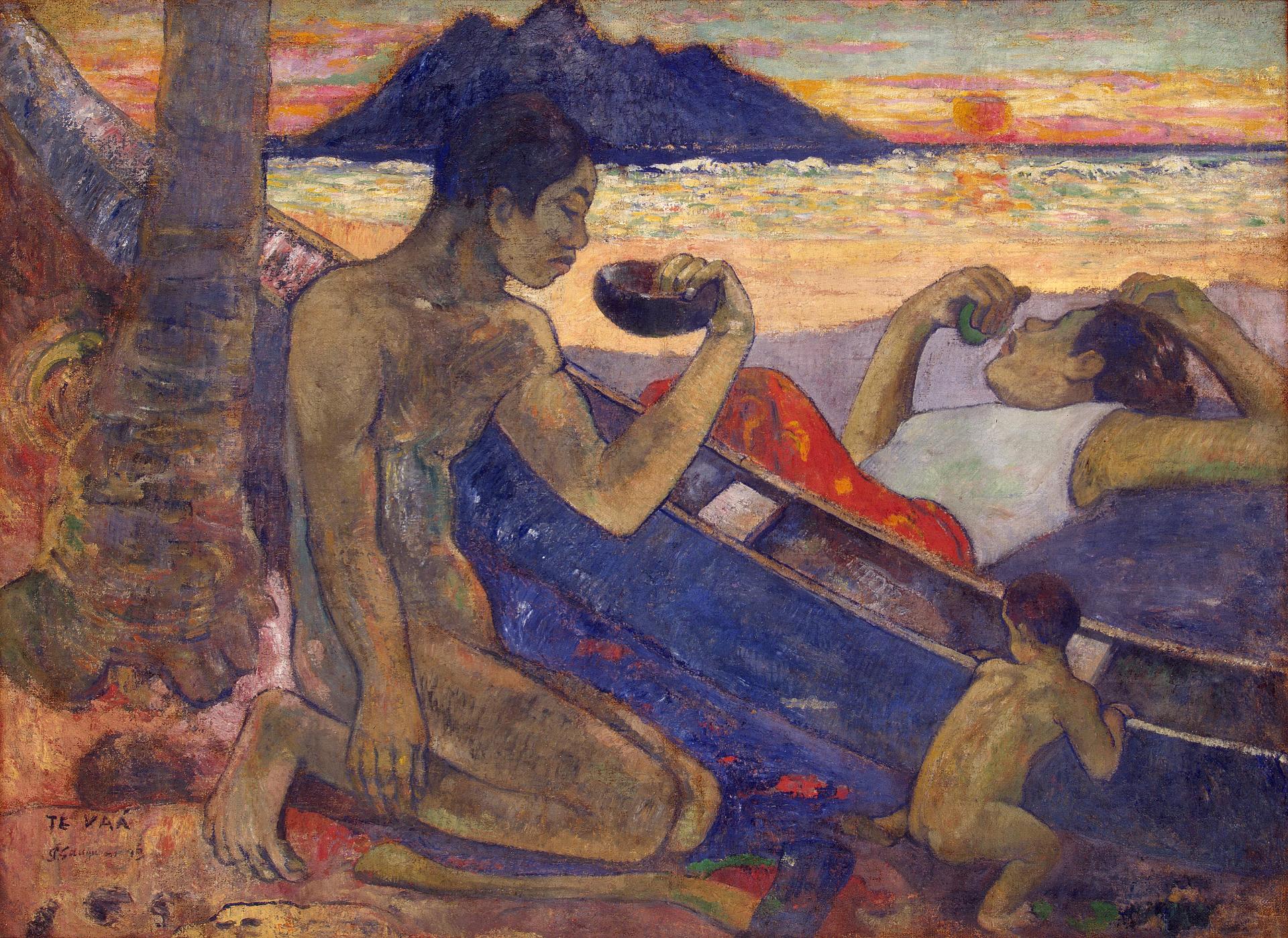Paul Gauguin - A Canoe. Tahitian Family. Te vaa 1896
 |
 |
 |
 |
 |
 |
 |

A Canoe. Tahitian Family. Te vaa 1896
96x130cm oil/canvas
Hermitage, St. Petersburg, Russia
The image is only being used for informational and educational purposes
<< Previous G a l l e r y Next >>
From Hermitage, St. Petersburg:
Gauguin moved to Tahiti (Polynesia) in 1891, seeking to find the simplicity lacking in the "civilised" life of Parisian society. Here he depicted a family of Tahitian islanders, although the idea for the painting is derived from a work by the French artist Puvis de Chavannes, "The Poor Fisherman". Gauguin's romantic imagination was fed not only by his impressions of Tahiti but also the works of other masters and other cultures - he was one of the first to find inspiration in the art of primitive and ancient peoples. This scene takes place in a different, exotic world, and all the lines in the painting are subordinated to the slow rhythm of that world. The pose of the seated fisherman recalls figures in ancient Egyptian paintings, while the frontal placing of the shoulders and the profile depiction of the knees also derive from ancient Egyptian art. With this in mind, the gesture of the Tahitian woman as she drinks from a coconut shell takes on almost the aspect of a ritual. Unfortunately the paints used in this work have changed irrevocably and thus the colours have lost something of their original resonance and vibrancy.